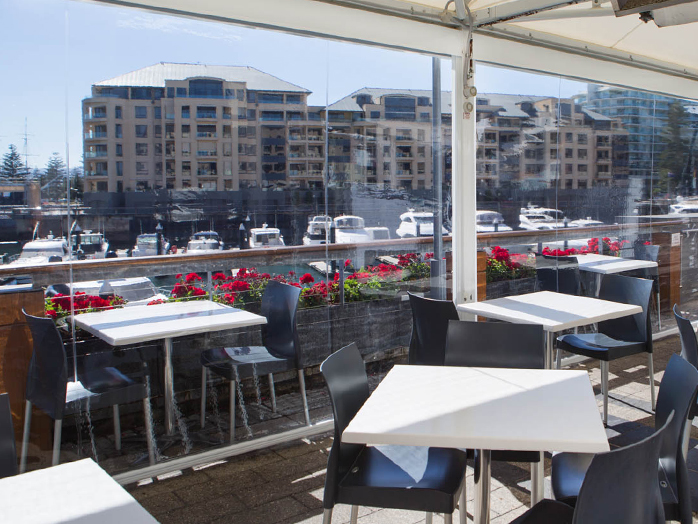
News

6 questions to ask before buying PVC patio blinds
PVC patio blinds are a fantastic addition to your home or business to help protect your space from cold weather, wind and insects. Since PVC is a solid surface, it completely blocks the elements so you’re able to enjoy outdoor entertaining whilst maintain your view.
Outdoors blinds are commonly also known as bistro blinds, café blinds, patio blinds, pergola blinds or alfresco blinds.
There is a range of questions to ask before deciding to purchase PVC blinds.
Is the blind track-guided?
If you’re looking for a PVC patio blind, you probably want to block the chilling wind or insects from entering your area. Many people also use PVC patio blinds to enclose their space and keep the warmth of people or outdoor heaters maintained within the area.
There are a few different types of vertical outdoor blinds that are compatible with PVC. If you’re to address the issues above, track-guided blinds are the best choice by far. Track-guided blinds are designed so that the PVC meets the track without any gap for wind or insects to enter through, or heat to escape from. Other blinds have huge gaps to the left and right sides, which negate much of the purpose of having a blind. Some blinds will have zippers that degrade and fail to operate as they are constantly exposed to the elements.
Is the PVC a high quality Japanese product?
Always ask for 0.75mm or thicker high quality Japanese PVC. Achilles is a leading provider of UV stabilised, clear or tinted PVC that will look great and last for years. Cheaper products could yellow, become ‘cloudy’ or brittle over time whilst high quality products will have an exceptional finish for a much longer time.
How do I operate the blind?
Spring-balanced blinds are the easiest to operate, as you simply grab the blind and move it to your desired height. It’s best to avoid blinds that have zips, ropes, pullies or a crank handle. These types of blinds are generally more time consuming and complex to operate. These style of blinds can also look a little cluttered and messy.
Ziptrak® spring-balanced blinds can be left at any height and locked at the bottom.
Should I install myself?
The installation of outdoor blinds should always be left to a professional installer. Your chosen retailer should measure, quote, produce and install the product. Outdoor blinds are almost always custom made to fit each individual opening, which requires a great deal of expertise in measuring and installing the system. Installing yourself can lead to a variety of issues which can be extremely difficult or impossible to overcome. Leave it to the professionals!
Should I buy sunscreen mesh or PVC?
PVC is a great solution if you’re looking for complete protection from wind and to best retain warmth within your area. If you’d still like some airflow when the blinds are down, sunscreen mesh may be a better choice for you. Sunscreen mesh also provides superior shading and sun protection. Clear PVC provides the best view beyond, however requires more cleaning and maintenance. There should be no difference in terms of operation or longevity.
How will the blind cope with windy conditions?
PVC outdoor blinds offer a complete barrier to wind. As a result, it’s very important that the system holding the PVC is strong enough to withstand strong wind. Imagine how much wind an umbrella can collect, let alone a solid piece of PVC 2.5 meters tall and wide!
The Ziptrak® blind system is uniquely qualified to withstand wind due to its patented side spline. Ziptrak® is the only product that offers a spline, making it the toughest system on the market. The spline is high frequency welded to the PVC on both sides and runs within a track. The spline attaches to the PVC on the front and rear face with a profile of 25mm. This large, high frequency welded surface is extremely strong.
Some PVC patio blinds have half of a zip attached to the PVC which runs within a track. The issue is that half of a zip can’t be as strong as a 25mm welded surface. As a result, Ziptrak® blinds are uniquely build to withstand wind, especially for PVC blinds.
Ziptrak® blinds are designed for Australian conditions and are frequently used by commercial and residential applications on the coast which require long-lasting, robust componentry.





















